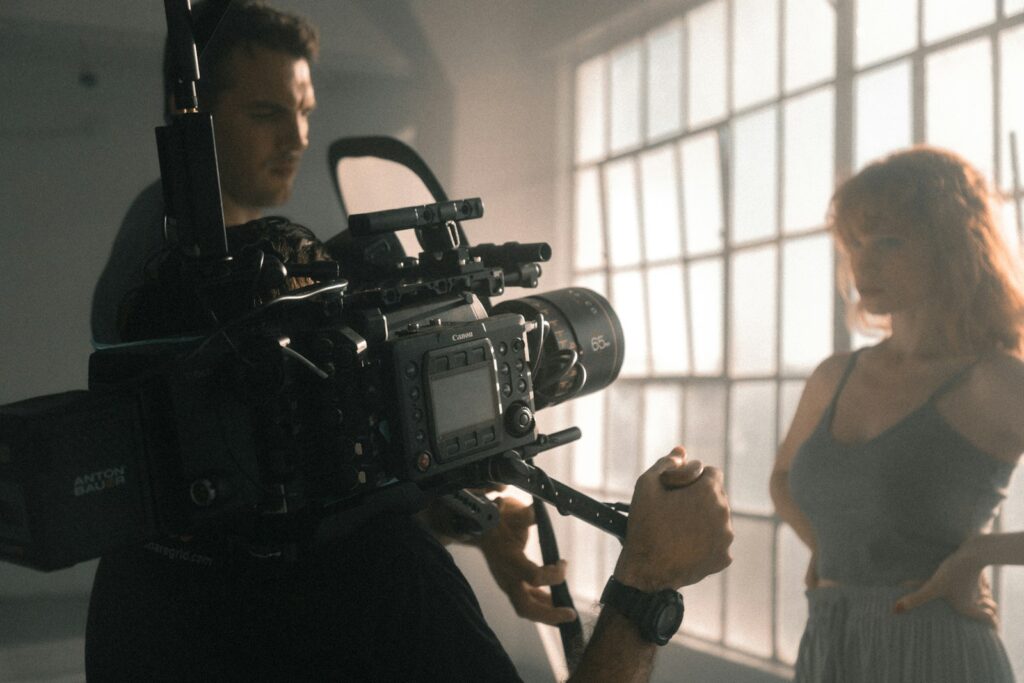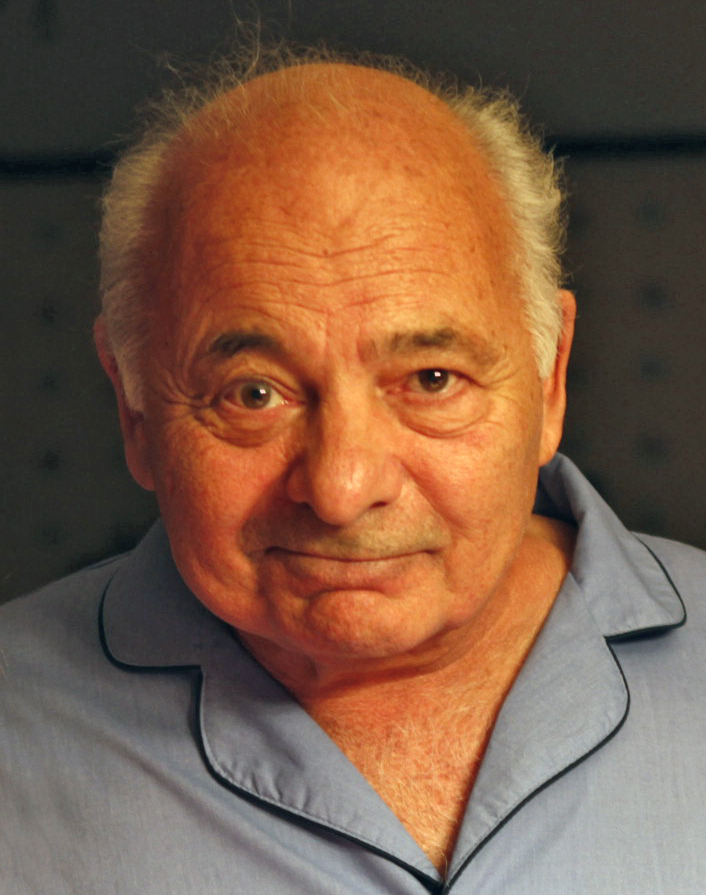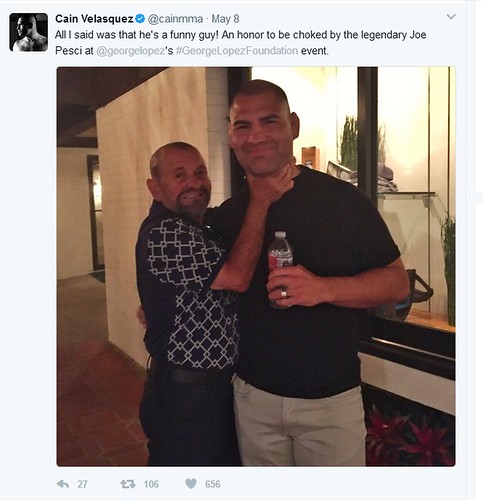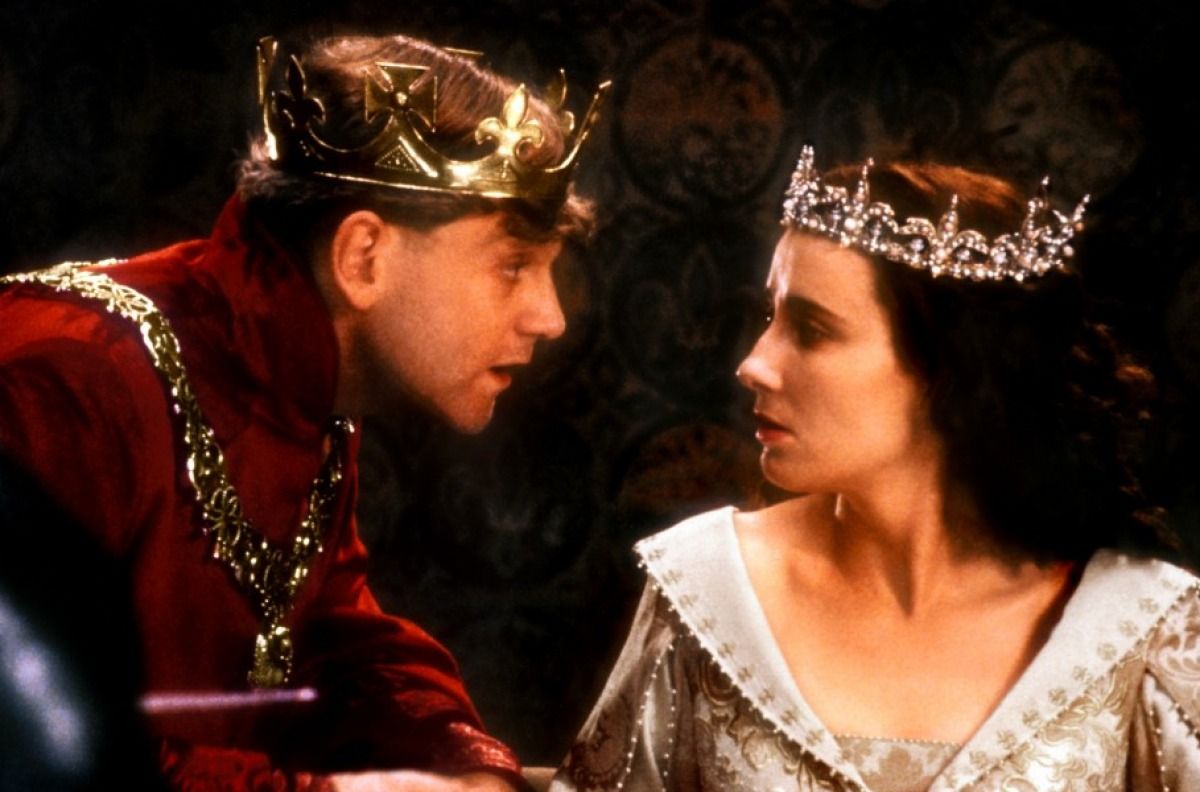
We all love a good sidekick, right? They’re the peanut butter to the protagonist’s jelly, the quirky companion who often delivers a much-needed laugh or a moment of unexpected wisdom. Sometimes, they even save the day, proving themselves to be the unsung heroes of our favorite cinematic adventures. Think about the likes of Hermione Granger or Samwise Gamgee—characters so integral they practically carried their respective heroes to the finish line. Yet, for every Samwise, there’s another kind of sidekick, one whose contributions lean less towards helpful and more towards, well, utterly chaotic or downright detrimental.
Today, with the rise of instant critiques and a collective re-evaluation of classic characters through a modern lens, it’s fascinating to revisit some of these beloved films and consider how certain sidekicks might fare if their antics played out on screen today. What once passed as quirky humor or a plot device could now easily spark online debates and discussions about their ‘toxic behavior’ or how they truly did ‘more harm than good.’ We’re talking about those characters who, despite their charm or comedic value, managed to make life significantly harder for everyone around them.
So, buckle up! We’re embarking on a fun, conversational journey to highlight some of these memorable movie sidekicks who, let’s be honest, would probably be getting a serious talking-to if their stories unfolded in our current, more scrutinizing pop culture landscape. While they might have provided crucial laughs or propelled the plot forward in unexpected ways, their methods (or lack thereof) definitely leave us with some lingering questions about their ultimate usefulness. It’s time to shine a spotlight on these scene-stealers who, perhaps unintentionally, caused more headaches than heroics.

1. **Walter Sobchak (The Big Lebowski)**Oh, Walter. Played to perfection by John Goodman, Walter Sobchak from “The Big Lebowski” is a character etched into the annals of cinematic history, delivering some of the movie’s most quotable and hilarious lines. Who could forget, “This is not ‘Nam. This is bowling. There are rules.” Indeed, his intensity and unwavering commitment to his own (often flawed) logic make him a truly unique and unforgettable presence. He’s the kind of friend you love to watch from a safe distance, but probably wouldn’t want to bring to a family dinner.
However, for all his comedic genius and memorable one-liners, Walter undeniably has a knack for making every difficult situation for The Dude (Jeff Bridges) considerably worse. His belligerent, paranoid, and often rude demeanor consistently escalates problems rather than resolving them, putting The Dude in increasingly precarious positions. It’s often frustrating to watch The Dude, a master of chill, constantly having to navigate the fallout from Walter’s ill-conceived plans and unshakeable self-confidence, despite the glaring evidence of his poor judgment.
Consider the notorious ransom money incident. Walter literally steals the money The Dude is supposed to deliver because he simply doesn’t believe the kidnapping plot is real, an act of such audacious arrogance that it defies belief. This decision alone throws The Dude’s already complicated life into an even deeper spiral of danger and confusion. His actions, driven by a deeply misplaced sense of justice and an inflated ego, are textbook examples of how a well-meaning (or perhaps not so well-meaning) friend can become an active hindrance.
But Walter’s problematic behavior doesn’t stop there. He also smashes a sports car, convinced it belongs to a teenager, only to incite the actual owner to destroy The Dude’s beloved vehicle. And let’s not forget the shocking moment where he accuses a man of faking his paralysis, forcing him out of his wheelchair in a scene that would surely generate outrage today. While he does eventually come in handy during the chaotic shootout at the end, it’s genuinely difficult to imagine that The Dude’s life wouldn’t have been far smoother and less perilous without Walter’s constant, self-serving interference.

2. **Flora, Fauna, Merryweather (Sleeping Beauty)**Now, let’s talk about a trio of sidekicks with perhaps the most straightforward (and yet completely botched) assignment in animated history: Flora, Fauna, and Merryweather, the three good fairies from “Sleeping Beauty.” Their singular, all-important mission was simple: keep Princess Aurora away from any sharp spindles on her 16th birthday, thus protecting her from Maleficent’s curse. It sounds like a pretty clear directive, right? Just avoid spinning wheels for a day, and everyone lives happily ever after.
But oh, how things went awry! Not only did they fail to shield Aurora from a spindle, they also neglected to even forewarn the poor child about the dangers of touching any spinning wheels. It’s a basic safety briefing that, one might argue, should have been a top priority. What’s even more baffling is that these supposedly ‘good’ fairies are also inadvertently responsible for the evil Maleficent actually finding the princess on her birthday, after years of meticulous hiding. It’s a classic case of good intentions paving the road to… more plot complications.
Of course, we understand that these missteps are essential for the narrative; Aurora *needed* to prick her finger and fall asleep so that Prince Phillip could swoop in and rescue her, fulfilling the timeless fairytale trope. However, if we were Aurora’s parents, the King and Queen, we would definitely have some very pointed ‘notes’ for them in the post-mission debriefing. One might even wonder about the thoroughness of their magical protective services given the stakes involved.
While Merryweather does deserve credit for using her magic early on to prevent Maleficent’s initial curse from being deadly, mitigating the ultimate horror, and the fairies eventually free Phillip and guide him to Aurora, it’s hard to overlook the glaring oversight. Their petty squabble over the color of Aurora’s ballgown—a moment of superficial bickering—is precisely what inadvertently revealed Aurora’s location to Maleficent. It’s a frustrating example of how minor, self-absorbed distractions can have catastrophic, fairytale-altering consequences, proving that even magical beings can be prone to highly problematic decision-making.

3. **Jon Carnahan (The Mummy)**Shifting gears, let’s turn our attention to Jon Carnahan (John Hannah), the ‘slippery’ brother of the brilliant librarian-turned-Egyptologist, Evelyn Carnahan (Rachel Weisz), in the thrilling 1999 adventure, “The Mummy.” Given the film’s 1923 setting, Jon’s presence is explained as a necessary escort for Evelyn, who, as a single female, couldn’t travel alone. This conveniently keeps him embedded in the team for the entire film, a narrative necessity we can concede. He’s often there for comic relief, a welcome break from the impending doom of ancient curses.
However, while Jon undeniably provides a lot of much-needed comedic relief throughout the movie, acting as a crucial element in balancing the suspense with levity, he proves to be far from a helpful or reliable member of the team. His character is consistently driven by an insatiable thirst for wealth and treasure, coupled with a striking lack of integrity. These deeply ingrained flaws cause significant headaches for his companions and often put them in perilous situations, proving that sometimes the biggest danger isn’t the ancient evil, but the greed of your own family.
Perhaps the most significant and utterly catastrophic consequence of Jon’s problematic behavior is his active role in the resurrection of Imhotep (Arnold Vosloo) himself. If it weren’t for Jon’s avarice and his inability to resist meddling with forbidden artifacts, the ancient high priest would likely have remained peacefully entombed. It’s a decision so profoundly reckless that it sets the entire plot in motion, leading to widespread destruction and placing everyone’s lives in immediate jeopardy.
Of course, without Jon’s fateful interference, there wouldn’t *be* a movie, and Rick O’Connell (Brendan Fraser) might still be languishing in prison, so in a meta-sense, it all works out for the best for us, the audience. Yet, looking solely at his character’s actions within the narrative, Jon Carnahan embodies the problematic sidekick whose personal failings and selfish desires directly contribute to monumental, life-threatening problems for his loved ones, constantly blurring the line between endearing rogue and outright liability.

4. **Jasper (Twilight)**Ah, Jasper. When we talk about the Cullen-clan vampires in the “Twilight” film series, many of them—like Emmett (Kellan Lutz) and Rosalie (Nikki Reed)—seem to exist primarily as striking eye candy, or perhaps to offer more options for those ubiquitous “Which Cullen are you?” quizzes. Most of the time, these spare vamps are generally unobtrusive, providing a little backup muscle and power with their unique special abilities. However, Jasper (Jackson Rathbone) presents a slightly more pronounced and frankly, more problematic case.
Jasper’s particular issues stem from his origin story. He spent his formative vampire years in a coven that was heavily focused on turning or devouring as many people as possible during the tumultuous American Civil War. This brutal upbringing meant he never developed the same stringent level of control over his bloodlust that the rest of his adopted family, the Cullens, had meticulously cultivated. He’s essentially a ticking time bomb of primal urges, constantly on the brink of losing control, which is, to put it mildly, a significant red flag in a family trying to live peacefully among humans.
This lack of control spectacularly manifests in “The Twilight Saga: New Moon.” When Bella (Kristen Stewart) unfortunately cuts her finger while opening a birthday present, Jasper goes feral, completely losing his composure and attacking her. It’s quite ironic that it’s a seemingly innocuous paper cut, amidst his daily proximity to countless “normal people living their lives,” that triggers such a violent outburst. This incident highlights the precariousness of Bella’s existence around the Cullens, particularly Jasper, and underscores the fragility of their carefully constructed façade of normalcy.
Jasper’s terrifying freak-out is the direct catalyst for the Cullens making the drastic decision to move away, which, in turn, forces Edward (Robert Pattinson) to abandon Bella, plunging her into a deep depression. While Jacob (Taylor Lautner) owes his brief, albeit doomed, romantic shot with Bella to this very sequence of events, Jasper’s lack of self-control is the linchpin. Ultimately, his problematic behavior drives a significant (and some might argue, slightly pointless) digression from the main story arc, creating unnecessary drama and emotional turmoil for the protagonists, all because a birthday celebration went catastrophically wrong.

5. **Seth (Superbad)**”Superbad” gifted us one of the most quotable, laugh-out-loud comedies of the early 2000s, and Jonah Hill’s iconic portrayal of Seth certainly grounded a significant portion of its humor. His relentless pursuit of a good time, coupled with his chaotic energy and often outrageous, poorly thought-out plans, are undeniably funny within the carefully constructed world of a movie. However, if Seth were your actual best friend navigating the social landscapes of today, you’d probably be drafting an urgent intervention, or at the very least, a series of strongly worded text messages about his undeniably problematic behavior. We’re talking about a staggering level of self-centeredness that makes even your most influencer-obsessed social media feed look remarkably humble by comparison.
The entire comedic engine of “Superbad” revs on Seth’s almost singularly focused mission: to hook up with his crush, Jules, and obtain alcohol for her epic party. While this is a classic, relatable teenage movie goal, Seth’s approach consistently throws his loyal friends, Evan and Fogell, into increasingly precarious and legally dubious situations. He doesn’t merely ask for their assistance; he masterfully manipulates them into becoming unwilling participants in his grand, ill-conceived scheme, effectively dragging them into a night of escalating chaos that could have easily landed them in serious trouble with the law or entangled them with far more unpredictable individuals. It’s a textbook demonstration of a friend who brazenly prioritizes his own immediate desires over the actual safety and well-being of those closest to him. This lopsided dynamic, rife with a distinct lack of consideration, would absolutely be dissected and called out in today’s more discerning online discourse.
And remember all the relentless “snark” Seth routinely dished out to his best friend Evan throughout the film? This wasn’t just playful teasing; it was a constant stream of passive-aggressive commentary, fueled purely by Seth’s resentment over Evan’s decision to attend a different college. That kind of emotionally manipulative and guilt-tripping behavior is a flashing neon red flag in any healthy relationship. A genuine friend celebrates your life choices, even if they signify a temporary change in your shared dynamic, rather than transforming it into a personal grievance or an ongoing source of passive-aggressive attacks. This persistent negativity and emotional burden placed upon Evan vividly illustrate a deeply unhealthy friendship, powerfully showcasing how Seth’s own insecurities frequently manifest as mean-spiritedness and resentment towards his supposed closest confidant.
Then there’s the unforgettable party incident, a cringe-worthy culmination of Seth’s problematic night. After all the convoluted effort, the brushes with danger, and the layers of emotional blackmail, Seth finally gets his moment with Jules, only to accidentally headbutt her while completely inebriated after she expresses she’s not interested in hooking up while he’s drunk. While the movie conveniently brushes past this with a swift second chance, in real life, such a moment would be widely discussed as a prime, albeit accidental, example of toxic behavior, a profound lack of respect for boundaries, and the serious dangers of excessive drinking severely impairing social interactions. The fact that Evan is genuinely terrified to even share the pleasant news about being college roommates with Fogell speaks absolute volumes about Seth’s volatile emotional landscape and overwhelming self-absorption. He’s arguably a poster child for friends you desperately need to evaluate, set firm boundaries with, or perhaps even discreetly distance yourself from for your own sanity.

6. **Paulie (Rocky)**Alright, let’s talk about Paulie Pennino. Rocky Balboa’s perpetually disgruntled, consistently disrespectful, and undeniably problematic brother-in-law is a character who practically screams “toxic relative” from his very first scene. Brought to life by the inimitable Burt Young, Paulie serves as a constant fixture across almost the entire “Rocky” franchise, and while we might understand *why* Rocky initially tolerated him – let’s be honest, he had a massive crush on Adrian – his enduring presence and his consistent repertoire of questionable antics would undoubtedly generate a massive uproar if these beloved films were to hit the screens today. His behavior is a masterclass in how not to treat your family, or anyone for that matter.
Paulie’s pervasive disrespect for Adrian, his own sister, is truly astounding and would be an immediate target for contemporary critiques. The context explicitly notes that it becomes “very clear that Paulie is incredibly disrespectful of Adrian and dismissive of all that she does for him.” This isn’t merely the occasional sibling squabble; it’s a deeply ingrained, habitual pattern of demeaning and unappreciative behavior that would ignite immediate and widespread outrage in our current cultural climate. Imagine Adrian’s quiet strength, her unwavering support, and her tireless efforts being constantly met with Paulie’s endless complaints, his entitlement, and his almost willful disregard for her contributions. Modern audiences would, without question, rightfully call out his clear misogynistic undertones and demand that Rocky, the film’s moral compass, step in far more decisively to shield his wife from such blatant and continuous disregard.
Beyond his appalling treatment of Adrian, Paulie truly excels as a master of “leeching onto Rocky’s success.” He contributes precious little of positive value, preferring instead to “mix with shady characters and stand in the corner while the Italian Stallion trains.” This habitual freeloading, combined with his general hotheadedness, quick temper, and an uncanny knack for stumbling into trouble, paints a vivid picture of a character who consistently drains vital energy and invaluable resources from everyone in his orbit, most notably Rocky himself. In today’s interconnected world, Paulie would undoubtedly be the subject of countless online threads – on platforms like Reddit or Twitter – debating whether he could genuinely be considered a true “friend” or merely an emotional and financial vampire, ruthlessly exploiting Rocky’s good nature for personal gain and rarely, if ever, offering any meaningful support in return.
While the films often portray Rocky’s seemingly endless kindness, patience, and unwavering love for Paulie as a defining testament to his own extraordinary character – indeed, he “epitomizes the city of brotherly love” – this particular dynamic would absolutely be re-evaluated through a modern lens. The central question would become: why does Rocky consistently extend grace and boundless forgiveness to someone who so reliably complicates and burdens his life? While it undeniably underscores Rocky’s deep compassion and unwavering loyalty, it also, perhaps inadvertently, showcases a problematic enabling of consistently destructive behavior. Contemporary viewers, armed with a greater understanding of healthy boundaries, would certainly be questioning Rocky’s boundaries and advocating for him to assert himself more robustly, even suggesting that Paulie needs professional help to address his lifelong pattern of causing “more problems than he solves.”

7. **Ron (Harry Potter)**Alright, fellow Potterheads, it’s time for a candid conversation about Ron Weasley. While Rupert Grint’s undeniable comedic timing and inherent lovability often managed to sprinkle charm over his movie portrayal, many dedicated fans would readily agree that Ron, particularly his on-screen iteration, could sometimes be quite the “drag.” The films, in their necessary and often challenging task of condensing J.K. Rowling’s expansive novels, sometimes inadvertently amplified Ron’s less desirable traits, making his character arc feel even more conspicuously problematic when viewed through the critical lens of modern scrutiny. Let’s be honest, his behavior, especially his emotional outbursts and bouts of insecurity, would become instant viral content on platforms like TikTok and Twitter, sparking endless debates.
Ron’s most glaring character flaw, as the context so accurately pinpoints, was his “monstrous envy of nearly everyone in his life,” compounded by a striking and consistent “lack of emotional intelligence.” This isn’t just a minor, endearing quirk that makes him relatable; it’s a foundational aspect of his personality that actively, and often profoundly, complicated and burdened the lives of his two best friends, Harry and Hermione. Cast your mind back to the pivotal events of “Harry Potter and the Goblet of Fire.” When Harry’s name mysteriously and dangerously emerges from the Goblet, thrusting him into a deadly tournament, what does Ron do? Instead of offering immediate and unconditional support, Ron spends months being “nasty to him… because he thinks Harry is trying to get attention.” This truly egregious display of deep-seated insecurity and completely misplaced anger, directed at his best friend during a genuine crisis, would undoubtedly be called out as a textbook example of a friend making a dire, life-threatening situation entirely about their own petty feelings.
And let’s not conveniently forget the infamous Yule Ball incident in that very same film, where Ron, consumed by a palpable wave of jealousy, made Hermione cry simply because she dared to attend the festive event with Viktor Krum, a Quidditch star. This possessive, emotionally immature, and frankly, rather controlling reaction would be meticulously dissected and unequivocally condemned in today’s more enlightened discourse surrounding healthy relationships. The archaic notion that a male friend somehow believes he possesses the right to dictate a female friend’s romantic choices, or to lash out with such venom when she exercises her own legitimate agency, is a deeply problematic trope that would face heavy and immediate criticism today. It vividly highlights a recurring and troubling pattern of Ron’s emotional immaturity consistently clouding his judgment, often leading to unnecessary distress for those he professes to care about most.
Perhaps his most significant and widely debated offense, as directly highlighted in the source material, was his shocking abandonment of Harry and Hermione during the perilous quest of “Harry Potter and the Deathly Hallows.” While the narrative often employs the influence of the Horcrux as a convenient excuse for his behavior, his fundamental inability to “acknowledge and address his own insecurities” before storming off in a fit of pique, leaving his two best friends vulnerable, alone, and desperately searching for crucial magical artifacts during their most vital mission, would be viewed as a profound and almost unforgivable betrayal. Modern audiences, with a heightened awareness of mental health and healthy communication, would struggle immensely to forgive such a blatant disregard for his friends’ safety and their emotional well-being, rightly demanding a much more thorough and honest reckoning for his actions than he perhaps ultimately received in the story.

8. **Leo Getz (Lethal Weapon)**Alright, let’s pull back the curtain on Leo Getz. Played with signature frantic energy by the inimitable Joe Pesci, Leo unceremoniously burst onto the “Lethal Weapon” scene in the second movie, seemingly out of nowhere, immediately prompting a collective, resounding question from audiences: did we *really* need this character? The context bluntly, and quite accurately, states that he was “so unnecessary to the ‘Lethal Weapon’ structure that he wasn’t even in the first movie of the franchise.” It seems that someone, somewhere in the creative process, decided the beloved action series desperately required “more humor,” and, for some inexplicable reason, this “irritating, useless character” was deemed the perfect solution. Talk about a questionable creative choice!
While Leo’s relentless presence undeniably pushed the plot forward in “Lethal Weapon 2” (even if he achieved it through sheer, unadulterated annoyance), his continued, almost gravitational pull into the events of “Lethal Weapon 3” truly stretches the boundaries of believability to their absolute breaking point. Martin Riggs and Roger Murtaugh, despite being explicitly described as “annoyed out of their minds” by his constant interruptions and chaotic energy, inexplicably maintain contact with him and, even more bafflingly, allow him to continually involve himself in their high-stakes, life-or-death investigations. In any modern police procedural or action film, a character who so consistently obstructs progress, forever “asking for a gun or playing an angle to get something out of Riggs and Murtaugh,” would be immediately benched, if not outright arrested for interference. His chaotic antics and self-serving distractions repeatedly divert the detectives, actively preventing them from “making more progress in their investigations,” thus making him a literal, walking, talking liability to every mission they undertake.
But perhaps the most truly problematic and uncomfortable aspect of Leo Getz isn’t simply his irritating uselessness or his penchant for chaos; it’s the deeply unsettling way he is consistently treated by the supposed heroes of the franchise, Riggs and Murtaugh. The context directly highlights “how much he is constantly harmed and tormented by Riggs and Murtaugh.” This isn’t merely a running gag or a bit of lighthearted, buddy-cop banter; it often veers uncomfortably close to outright abuse. Consider the implications: our protagonists, the supposed good guys, are actively inflicting physical and psychological harm, or at the very least playing cruel and humiliating tricks, on this character. In today’s climate, where discussions around workplace harassment, bullying, and ethical conduct are rightly taken with immense seriousness, the dynamic between Riggs, Murtaugh, and Leo would undoubtedly spark intense discussions about appropriate professional and personal behavior, even for grizzled, rule-bending, maverick police officers.
The disturbing notion that Riggs and Murtaugh would go so far as to “trick the doctors into giving him an unneces” (the original context unfortunately cuts off here, but the implication strongly points towards unnecessary medical procedures or something equally cruel and manipulative) paints a rather grim picture of characters whose treatment of a problematic, but ultimately non-malicious, individual crosses a significant ethical line. While such gags were likely intended for crude comedic effect in the early 2000s, this kind of behavior, directed at someone merely perceived as annoying or inconvenient, would be unequivocally condemned today. It unfortunately illuminates a darker, more troubling undercurrent to their celebrated partnership, starkly revealing how even heroic figures, under the guise of humor, can exhibit deeply problematic, bullying tendencies towards those they consider beneath them or simply a persistent nuisance.
So there you have it – a wild ride through some of cinema’s most memorable, yet utterly problematic, sidekicks from the early 2000s. It’s clear that while these characters provided laughs, propelled plots, and occasionally even offered a glimmer of redemption, their actions would undoubtedly ignite a firestorm of online debate and call-outs if they premiered in today’s more socially conscious landscape. From unchecked self-centeredness and blatant disrespect to crippling envy and outright obstruction, these characters serve as fascinating time capsules, reminding us how much our collective understanding of healthy relationships and acceptable behavior has evolved. They might be iconic, but let’s be honest, we’d probably be ghosting most of them if we met them at a party today!




